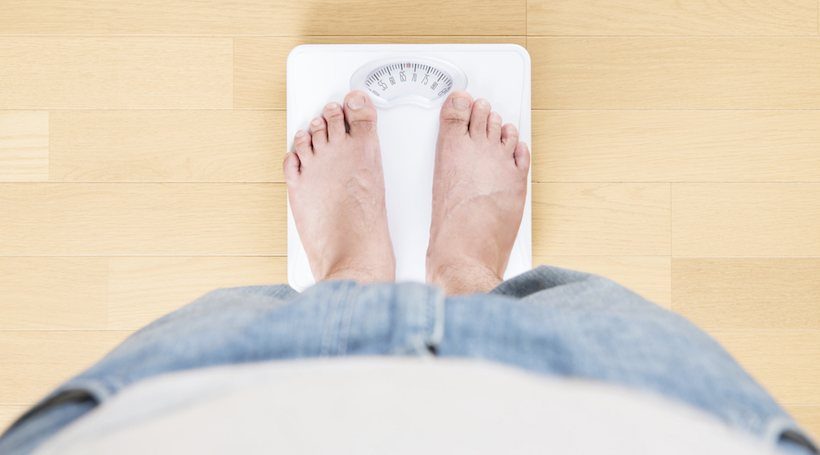When Jack graduated from high school in 2009 and headed to Virginia for college, he decided he wasn’t happy with his body type. Even though the Cherry Hill teen was 160 pounds and almost six feet tall – nowhere near being overweight – he was dissatisfied with what he saw in the mirror.
“I tend to gain weight in odd places,” he says. “I see myself differently than most people see me.” His face looked too full to him. He felt like he had a “muffin top” when he put on jeans. His solution was an intensive exercise regime that lasted at least two hours a day coupled with a diet that consisted of no fats, no sugars and avoiding most foods with the exception of salad. One evening when the resident advisor in the college dorm bought pizza for the freshmen studying for exams, Jack remembers sitting in the bathroom, taking bites of pizza, chewing and then spitting the pizza in a wastebasket so he wouldn’t take in the calories.
In the spring of 2010, when his father and mother were visiting him they saw a drastic change. “We were shocked at the weight loss,” his father says. “He was shockingly thin. His legs were like sticks. His face was drawn. And he thought he looked good.”
When Jack came home for summer break, the rounds of tests and medical appointments began. “We had a couple of very scary months,” his father says. Jack was down to 126 pounds. His eating disorder had made him tired and irritable. He also had thyroid problems that may have been connected to the intensive dieting.
But one thing Jack and his family learned that summer when his treatment began was he is not alone with this illness. While anorexia, bulimia and other eating disorders are often thought to be the territory of females ranging in age from 12 to 40, that stereotype is wrong.
“It’s definitely being diagnosed more [in males],” says Andres Pumariega, MD, head of the department of psychiatry at Cooper University Hospital. “The whole culture of thinness is a phenomenon that has crossed over to men. It is also associated more with certain athletes such as wrestlers and racehorse jockeys. “It is well known that they purge for races.” In 1982, Pumariega approached the Jockeys’ Guild and asked to do a study on eating disorders and jockeys, but they refused.
The images in advertising and movies have also taken their toll on body image. A century ago the corpulent man was thought to be successful and leading a good life. Now, we look at thinness in men and women as equaling success. “It’s a totally different message than 100 years ago,” Pumariega says.
Statistics vary on the number of men with eating disorders in the United States, but the Center for Eating Disorders Care at the University Medical Center of Princeton estimates that the number of males is over 1 million. About 10 to 15 percent of people with anorexia or bulimia are male, according to the National Association of Anorexia Nervosa and Associated Disorders. And, men are less likely to seek treatment.
“There is a sense of shame that can be a barrier to treatment,” says Rebecca Walter, PhD, primary therapist at The Renfrew Center. Last year, Renfrew opened a center in Mount Laurel, where one-on-one counseling is available for males. “We would guess that there are many more men struggling than those who actually come in for treatment.”
Men with an eating disorder often experience greater humiliation because the illness is stereotyped as a women’s disease, and many centers only offer treatment to women. “There is a stigma in general with eating disorders, but I think it is worse for men,” says Natasha Horsley, a psychotherapist at The Temenos Center in Moorestown who has counseled Jack and many other men.
Several prominent male athletes have died or battled anorexia. German Olympic rower Bahne Rabe, a gold-medal winning athlete, stopped rowing in 1995, but continued obsessive dieting and exercising until his death in 2001. He died of pneumonia but showed up at a hospital suffering from malnutrition. Laffit Pincay Jr., one of the nation’s most famous jockeys and winner of almost 10,000 races, admitted that he battled anorexia for years.
Linda Lang, MD, director of the Princeton center, says about 5 to 10 percent of her patients are males. One difference she sees between them and their female counterparts is that “males tend to be sicker, because they wait longer to get help.”
In males, Lang often sees an obsession with having a perfect muscular physique. She says they use supplements to promote muscularity and exercise obsessively to achieve their perception of the desirable male body.
What are the triggers for the illness? “Nobody really knows what the causes are,” Lang says. “They strive for masculinity, to feel more manly. There is definitely a need for perfection. They are often straight-A students. They constantly strive for perfectionism. Their families are generally high-achievers.”
Jack agrees that he fits that profile. He just graduated from Rutgers with a 3.9 GPA and is headed to graduate school. “I’m the poster child for a perfectionist. When I get a 94, I feel like I should have had a 98.”
Both men and women with the disorders have a preoccupation with their body type and how it affects how they feel about themselves, Walter says. In both sexes, multiple factors contribute to the diseases – from perfectionism to a life trauma to a family that over-emphasizes weight and body size – she says. Plus, those messages of thinness equaling perfection are on the TV and movie screens and on the pages of numerous fashion magazines.
“As a society we minimize or even glamorize eating disorders,” says Melinda Parisi, PhD, program director for the center in Princeton. She notes that when we see models in magazines, no one talks about eating disorders causing osteoporosis, muscle loss, cardiac complications, electrolyte imbalances and even death.
Pumariega agrees. “There are still a lot of misconceptions. Some people think it’s a matter of willpower that people stop eating,” he says. “But this is not an illness of people who are in control. They are terribly out of control. What they need is treatment, counseling and structure.”
And the seriousness of the disease cannot be understated. About 15 to 20 percent of males and females with serious eating disorders will die from them, Pumariega says. Another 40 percent will deal with the effects and continue to battle the disorder for much of their lives. And men, more than women, do not seek treatment until they are very far along. “The earlier we detect these, the higher chance we have of a full recovery,” he adds. “There has been an underestimation of these disorders, and they are deadly.”
Jack’s father, who lives in Voorhees, suggests insisting that your son sit down and eat a meal with you either at home or in a restaurant. If he is just moving the food around the plate, making excuses not to eat or counting out the pieces of food and insisting on checking all the labels for calories and fat content, get some help. “If you go to the doctor and you are wrong,” he says, “you are lucky.”
Jack will be heading to Florida this fall to study for a master’s degree in sports nutrition. He credits his therapist, parents and his own will for his recovery. “You can’t understand this until you go through it. A lot of people say, ‘Why can’t you just eat?’” he says. “I learned a lot that summer. I learned coping mechanisms. When I eat now, it’s not scary. There isn’t a lot of thought in it.”
Jack sees this as a lifelong battle and knows it will be harder in Florida without his support system. He also believes he never would have died from this illness. My parents would have done something,” he says.
He urges parents of boys who are getting thinner and thinner not to fear confronting them. “The biggest thing is don’t ignore it,” Jack says. “They should definitely become educated on all aspects of the disease, psychologically and physiologically. Do not just follow what you see on Dr. Oz or what you read in a health magazine. Be aware of the signs and symptoms, and listen to your child. He wants to be heard.”
Jack’s name has been changed to protect his privacy.














